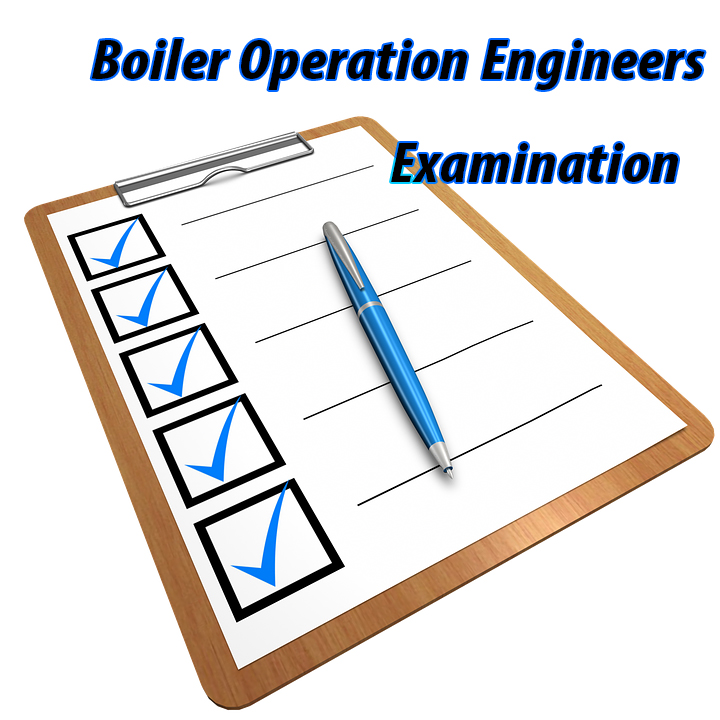Why do you need to appear for BOE Exam?

Eligibility Criteria – Age, Qualifications & Experience
Syllabus For Boiler Operation Engineers Examination
A candidate in order to be qualified for a certificate of proficiency under the Boiler Operation Engineers Rules 2011; shall, inter alia, satisfy the examiner that he—
(a) Can calculate loads, areas, volumes, quantities and weights;
(b) Can give description of the principal types of steam boilers used on land and to state the purposes and reasons for which different types of boilers are employed; and from the data and formulae supplied, calculate the safe working pressure for any part of a boiler in accordance with the Indian Boiler Regulations;
(c) Can calculate the direct stress, the torsional stress and the bending stress in round bars and shafts and the bending stress in rectangular bars and levers with given load;
(d) Understand the working and management of steam boilers, super heaters and economizers;
(e) Understand the use and purpose of various valves, cocks, mountings, fitting and other safety devices;
(f) Can give a description of and explain the functions of feed pumps, feed injectors, feed regulators, feed water filters and softeners, feed heaters, air heaters, calorifiers, steam accumulators, forced draught, induced draught and automatic draught control devices;
(g) Can answer questions on fact relating to combustion, heat and steam and calculate consumption of coal and water and quantity of steam that may be generated from a given heating surface under the various systems of draught, in any land boiler and also calculate the overall efficiency of boiler plant;
(h) Can explain jet and surface condensation, reheating and the working of steam expansion;
(i) Can explain the general methods employed in laying foundation for boilers and chimneys and the suitable area and height of chimneys promote efficient combustion;
(j) Can explain the significance of principal appliances in use for the prevention of smoke and the principle on which they work and given description of the principal mechanical stokers, pulverizes, gas, oil and pulverized fuel systems in use;
(k) Understands the need for periodical cleaning, the methods used for prevention of scale or other deposits on heating surfaces and the necessity for maintaining a certain PH value in feed water;
(l) Can detect defects in boilers and state the means and methods of rectifying them.
(m) Understands the precautions to be taken for starting a boiler and economizer from cold or from banked fire condition;
(n) Understands the procedure to be adopted in putting an economizer out of commission while the boiler is on steam;
(o) Can explain the methods adopted for the achievement of fuel economy and the use of various instruments used in a Boiler House;
(p) Materials used in Boiler components and piping; and
(q) Can read and prepare a working sketch and drawing of boilers and boiler mounting or parts thereof.
Subjects for Written Exam
Written Examination:
Paper 1 – Covering subrules (a) to (h) mentioned above
Paper 2 – Covering subrules (i) to (p) mentioned above
Written Drawing Examination:
Covering subrules (q) mentioned above
Oral Examination:
Questions pertaining to Boiler practices, if required demonstrate in examination room/workshop